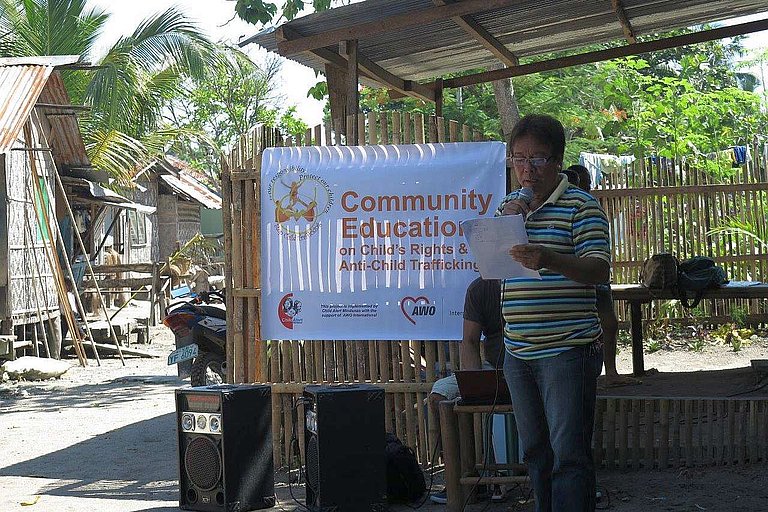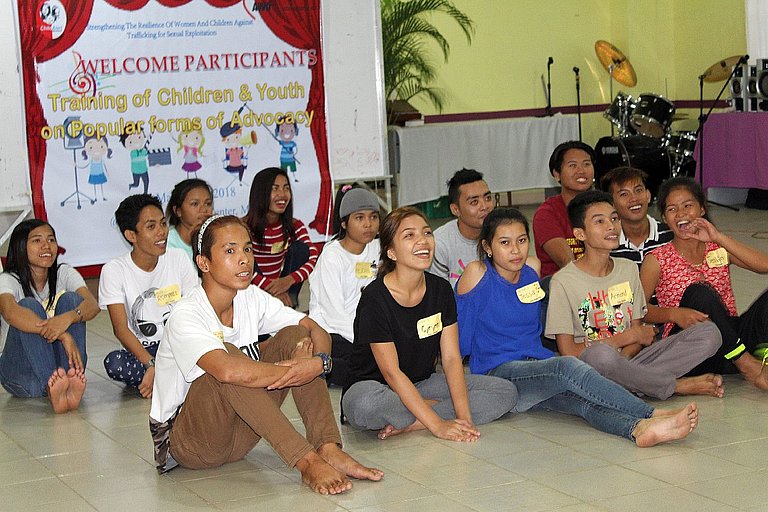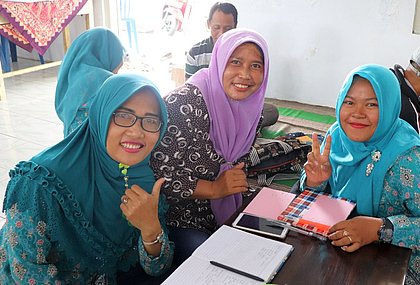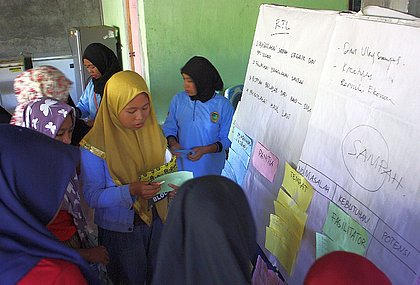The Philippines is one among many countries where the rate of child trafficking and child prostitution is particularly high. It is estimated that around 100 000 children are forced to work in prostitution and sex tourism. The number of unreported cases is probably even higher. With the rapid development of information technology, the phenomenon of cybersex has also spread: Shops are opening up in the furthest corners of the Philippines, where children are forced to perform sexual acts in front of cameras. A major cause of child trafficking is poverty, one of the country’s pervading problems. In addition, many people are also poorly informed about the subject.
Child Alert Mindanao (CAM) envisions a society that protects children. It was founded in 2006 in Davao City. As the name suggests, it alerts local government units, communities and the private sector about the human rights situation of children. The team promotes and advises on the establishment and safeguarding of structures and mechanisms to protect children from exploitation and abuse. Similarly, Child Alert creates awareness among children about their own rights.
Strengthen rights and demand implementation of laws

AWO International partnered with CAM to capacitate the local communities in establishing and ensuring appropriate structures and mechanisms are in place for the benefit of children. Working directly from the grassroots and coordinating with local government agencies, the project sought to improve access to appropriate social services of the government for children, parents and community-based groups, such as health, education, shelter, and livelihood opportunities.
Furthermore, the project also encouraged children, the youth, and parents’ organisations to play an active role in the fight against trafficking and sexual abuse by means of the following activities: leadership and socio-civic activities, community education sessions, advocacy training, and human rights awareness campaigns. Moreover, the private sector was also brought on board to fight sexual exploitation and online sexual abuse; the management staff of private institutions took active part in community awareness campaigns and dialogues and helped create child-friendly and safe places. The project also supports local legislations through creating and amending barangay, municipal and city ordinances for children and women protection.
A strong legal basis and corresponding laws are essential for the protection of children and women. Thus, CAM worked within the project to improve local legislation by adopting and adapting guidelines and laws at village, municipality and city level. Often protective laws are already in place in the Philippines, but there is a lack of implementation at the local level. Therefore, the project included a mechanism for the effective implementation of laws and policies to protect against sexual exploitation.
Projectinfo
| Project | Strengthening the Resilience of Women and Children Against Trafficking for Sexual Exploitation and Online Sexual Abuse |
|---|---|
| Place/Region | Davao del Norte – specifically in the following areas: Municipality of Talaingod (in Barangay Dagohoy, Palma Gil, and Sto. Niño), Municipality of Kapalong (in Barangay Maniki and Semong), Tagum City (in Barangay Mankilam and Magugpo North), Island Garden |
| Partner | Child Alert Mindanao |
| Target group | Children, young people, and their parents; their communities; victims and survivors of sexual abuse on the internet and trafficking for sexual exploitation |
| Activities |
|
| Duration | 2018-2019 |
| Budget | 78.967 Euro p.a. |
| Sponsor | BMZ |


